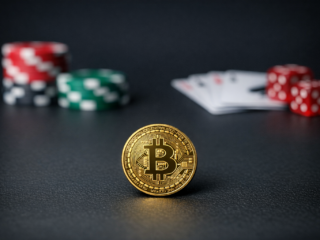
There is no word in the marketing lexicon more powerful or more capable of short-circuiting rational thought than “Free.” A free sample, a free trial, a “buy one, get one free” offer—these promotions have an almost magnetic pull. In the world of online entertainment, the ultimate expression of this is the no-deposit bonus: free credit or spins just for signing up, with no financial commitment required.
On the surface, it’s a simple taste test. But the psychology behind “free” is far more profound. A no-deposit offer isn’t just a promotion; it’s a sophisticated tool that leverages powerful cognitive biases to build trust, create obligation, and convert a casual browser into a loyal customer.
The Core Concept: The “Zero Price Effect”
The “Zero Price Effect” essentially acts as a cognitive shortcut. When our brain sees a price, even a tiny one, it triggers a standard cost-benefit analysis. We subconsciously weigh the pros and cons. Is this item worth $0.01? It’s a minuscule calculation, but it still happens.
However, the word “Free” bypasses this entire process. It shifts the decision from a logical, market-based transaction to an emotional, social one. There is no longer a “cost” side to the equation, so the “benefit” side, no matter how small, wins by default. This creates a powerful, irrational excitement. A classic experiment by behavioral economist Dan Ariely perfectly illustrates this. He offered people two choices:
- A high-quality Lindt Truffle for 15 cents.
- A standard Hershey’s Kiss for 1 cent.
Most people chose the superior truffle, seeing it as a great deal. Then, he lowered the price of each by just one cent:
- A Lindt Truffle for 14 cents.
- A Hershey’s Kiss for FREE.
Logically, the relative value is the same. But behavior flipped dramatically. The vast majority of people now chose the free Hershey’s Kiss. The allure of “free” was far more powerful than the allure of a great bargain.
Applying this to the Hit’n’Spin bonus, the principle is identical. A “no-deposit bonus” isn’t just a small incentive; it’s a powerful psychological trigger. It eliminates the primary barrier for any new user—the fear of making a bad financial decision. By removing the price entirely, the offer moves from “Is this worth my money?” to “Why not? There’s nothing to lose.” This simple shift is the foundation upon which many successful customer acquisition strategies are built.
The Psychological Hooks: Turning “Free” into Loyalty
A no-deposit bonus is a calculated investment designed to trigger a sequence of psychological responses that lead to long-term engagement.
The Principle of Reciprocity
This is a powerful social glue. When someone gives us something, we feel a deep, subconscious obligation to give something back. By giving a player a free bonus, a platform creates a small social debt. The player feels a sense of gratitude and is more likely to “repay” the platform by making a real-money deposit later on.
The Endowment Effect and a Taste of Ownership
Once you’ve claimed your free spins, the Endowment Effect kicks in. You start to feel a sense of ownership over the bonus and your account. It’s no longer just a site you are browsing; it’s your account with your bonus. This feeling makes it much harder to simply walk away.
The “Foot-in-the-Door” Technique
This classic persuasion technique suggests that getting someone to agree to a small request makes them far more likely to agree to a larger request later.

Signing up for a no-deposit bonus is the small, frictionless request. By creating an account and playing, you have already made a micro-commitment, significantly lowering the barrier to the next step—making a deposit.
Reducing Friction and Building Familiarity
A no-deposit bonus is the ultimate “try before you buy” offer. It allows you to explore the platform and get comfortable with the interface without any financial risk. This process of familiarization is crucial. By the time the bonus is used up, the platform is no longer a strange entity; it’s a familiar environment, which makes the decision to deposit feel safer and more natural.
The “Catch”: Navigating the Terms of “Free”
Of course, a no-deposit bonus isn’t a simple cash handout. It’s a marketing tool with rules designed to prevent immediate withdrawal and encourage play. Understanding these is key to assessing the offer’s true value. Here are the typical conditions attached to “free” offers:
- Wagering Requirements: You must bet the bonus amount (or winnings from free spins) a certain number of times before you can withdraw it.
- Maximum Cashout: There is often a cap on how much real money you can win and withdraw from a no-deposit bonus.
- Game Restrictions: The bonus may only be usable on specific games selected by the platform.
These terms are not meant to be deceptive; they are the business logic that makes the “free” offer sustainable. They ensure the bonus is used for its intended purpose: to let you genuinely experience the platform. The psychology of “free” is a powerful force that taps into our most fundamental cognitive biases. No-deposit bonuses are a masterclass in its application, working by deactivating our risk aversion, creating a sense of reciprocity, and building familiarity. While these offers provide a genuine, risk-free way to test a new product, it’s essential to understand the psychological mechanisms and the terms involved. The word “free” is designed to lower our guard. By recognizing how it influences our decisions, we can enjoy the benefits of these promotions while remaining in conscious control, ensuring a “free” taste doesn’t lead to an unintended commitment.











